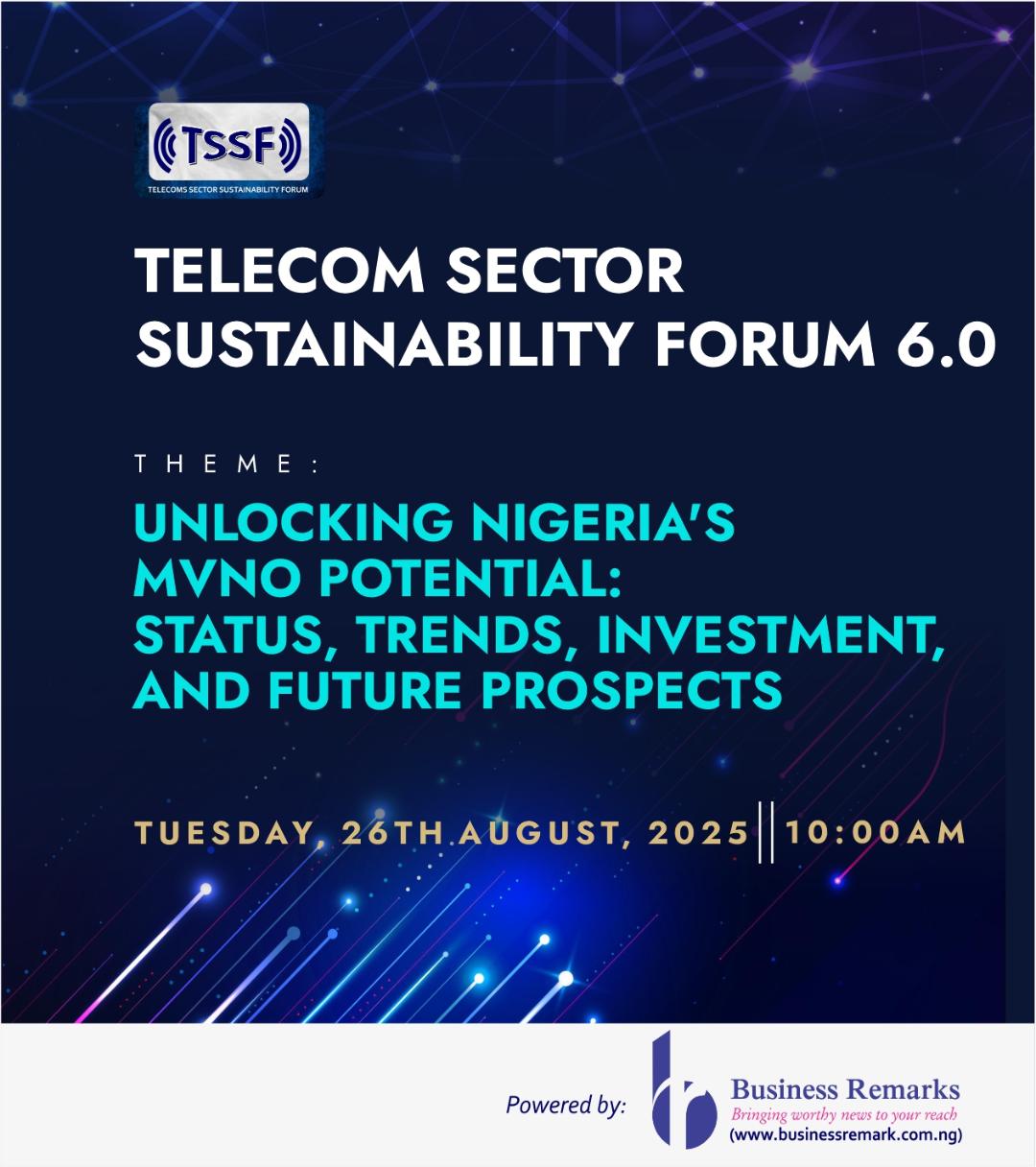Telecom
Zoho Redefines Small Business CRM Market, Introduces Team Pipelines in Bigin

Zoho Corporation, a leading global technology company, is today unveiling the latest version of Bigin, the company’s CRM solution for small businesses. As the preferred CRM solution for small businesses, Bigin offers a simple yet powerful CRM without the high barrier of entry and cost. Today’s product updates further support small and micro businesses by providing them the tools and insights they need to maintain and grow meaningful and high-value relationships with customers in a challenging economic environment.

“Small businesses face challenges in choosing the right technology for managing their customer-facing operations because of constraints related to time, cost, and software implementation,” said Kehinde Ogundare, Country Manager, Zoho Nigeria.
“Bigin is the only solution that brings together all customer operations like sales, onboarding, delivery, training, advocacy, and more into an intuitive interface that takes only 30 minutes to deploy.
“By bringing together all the facets of customer operations into a single view, Bigin allows small businesses to have a more accurate understanding of the customer’s journey.
“These insights help them attract and retain customers, ultimately growing the business. The fast-growing adoption of Bigin shows the expanding appetite of small businesses who want and need CRM technology suited to their particular needs, helping them move beyond old-school spreadsheets.“
Since Bigin’s launch in 2020, it has stood out as a robust, easy-to-use, and welcoming CRM solution thanks to its 30-minute set up promise. Bigin has seen a revenue growth of 161% in 2022 in Nigeria, indicating the revenue has doubled compared to 2021.
Zoho has observed that around 65% of Bigin’s global customers have never used a CRM previously, making it the ideal choice for business owners who are looking to move away from spreadsheets. When they outgrow Bigin, Zoho also offers them an easy migration to its full-fledged CRM solution.
Bigin now boasts 20,000 customers and continues to help small and micro businesses manage all of their customer-facing operations within a unified platform.
Bigin’s latest version includes the introduction of Team Pipelines, which allow customer-facing teams to manage their distinctive operations using a set of pipelines and sub-pipelines within a single Bigin account. Competitive offerings often cater only to a single function — like sales — whereas Bigin is an efficient solution for all customer-facing teams.
New features compile customer operations into one place, and enable tighter alignment and collaboration between individuals and teams without compromising the simplicity that makes Bigin stand out.
Key Product Updates
● Team Pipelines: This feature connects and streamlines various customer operations in one place, offering small businesses an easy way to manage their day-to-day processes and a single source of truth for analyzing customer data.
● Connected Pipelines: Automates the flow of customer data across processes, improving the customer experience and saving time on manual data entry.
● Toppings: Additional functionality and third-party integrations can be added to address specific business needs. Examples include the ‘Email-In’ topping which maps emails to customer records and the ‘File Cabinet’ topping which automates file collection and management.
● Mobile Capabilities: Zoho is providing new features across all platforms, including iOS, iPadOS, Android, and macOS and has added a new feature called Dynamic Display which allows users to customize the appearance of records in their pipelines. Bigin also recently updated its apps for the Apple’s iOS16 and Samsung Galaxy Z Fold 4 launches, where it was an exclusive launch partner.
● Developer Center: Bigin has opened its developer platform to a network of global app developers and partners who can create custom solutions for unique business needs. With various tools and components like custom fields, buttons, links, widgets, related lists, and REST APIs, developers can create new Toppings and monetise them in the Bigin Marketplace.
Disclaimer: All trademarks, product names, and company names cited herein are the property of their respective owners.
Pricing
Bigin by Zoho CRM starts at ₦2,100 /user/monthly (billed annually) for the Express edition and goes up to ₦3,600 user/monthly (billed annually) for the Premier edition. A free edition is also available.
Zoho Privacy Pledge
Zoho respects user privacy and does not have an ad-revenue model in any part of its business, including its free products. The company owns and operates its data centers, ensuring complete oversight of customer data, privacy, and security. More than 80 million users around the world, across hundreds of thousands of companies, rely on Zoho everyday to run their businesses, including Zoho itself.
Telecom
NCC Wins Global ICT Award for Digital Awareness in Schools

Nigeria, through the Nigerian Communications Commission (NCC), has won the 2025 World Summit on the Information Society (WSIS) prize for its project, the Digital Awareness Programme (DAP), under Category C3, which is on Access to Information and Knowledge.

L–R: Executive Vice Chairman/CEO of the Nigerian Communications Commission (NCC), Dr. Aminu Maida, receives the WSIS 2025 Prize (Category C3: Access to Information and Knowledge) from the Secretary-General of the International Telecommunication Union (ITU), Doreen Bogdan-Martin, following the selection of the Commission’s Digital Awareness Programme (DAP) as winner of the category.
The DAP, one of hundreds of projects submitted for the WSIS Prizes competition 2025, received the highest number of votes in its category, earning it the top honour. The programme equips secondary schools across the country with Information and Communication Technology (ICT) resources and provide internet connectivity to support teaching, learning, and research. Since inception in 2006, over 300 schools across Nigeria’s six geopolitical zones have benefitted from the programme.
The Executive Vice Chairman of the NCC, Dr. Aminu Maida, received the award during the WSIS Prizes Winners 2025 Ceremony held on Monday in Geneva, Switzerland.
In his acceptance remarks, Dr. Maida thanked the hosts, the International Telecommunications Union (ITU) and WSIS, for recognising Nigeria’s efforts in promoting inclusive digital access across Nigeria, noting that the award would serve as further motivation for the Commission.
“This recognition is more than a celebration of past efforts—it is an encouragement to press forward. It affirms that investing in digital inclusion is investing in national development, and that Nigeria’s work is being seen and valued on the global stage,” Dr. Maida said.
Four other Nigerian projects—the Women Techsters and the Advanced Digital Empowerment Programme for Tertiary Institutions (ADEPTI) under Capacity Building, the Telecom-Based Research Grant Initiative under Enabling Environment, and the Digital Learning Initiative under e-Learning—were also celebrated for their nomination for the Champions Category of Projects at the WSIS Prizes Ceremony. Although they were not among the top-voted entries, they were acknowledged for their significant merit and impact.
The WSIS Prizes competition recognises and promotes projects that effectively leverage ICTs to advance sustainable development. The competition showcases how technology can serve as a powerful tool for addressing global challenges and achieving the SDGs. Projects from around the world are recognised annually, highlighting diverse approaches to building an inclusive information society.
The World Summit on the Information Society (WSIS) is a United Nations (UN) initiative aimed at building a people-centred, inclusive, and development-oriented information society. It provides a multi-stakeholder platform to address issues related to Information and Communication Technologies (ICTs) and their role in achieving sustainable development.
The Forum is an annual event that brings together high-level representatives from governments, the private sector, civil society, academia, the technical community, and international organisations. It serves as a global platform for implementing the WSIS Action Lines, which are aligned with the UN Sustainable Development Goals (SDGs).
Telecom
No More Excuses: NCC Sets Tough August Deadline to Tackle Telecom Hitches

Nigerian Communications Commission (NCC) has given telecom tower operators in the country August 2025 deadline to fix persistent network hitches in their facilities or face regulatory sanctions.

The Executive Vice Chairman (EVC) of the commission, Dr. Aminu Maida, reportedly gave the ultimatum during a high-level meeting with key industry players, attended by representatives of IHS Towers, American Tower Corporation (ATC), and Pan-African Towers, and mobile network operators (MNOs) in Abuja
According to sources, discussions at the meeting focused on the recurring challenges in the telecoms sector, particularly power failures, equipment malfunctions, and insufficient site maintenance, that have been causing poor Internet and call services in the country
Specifically, Maida tasked the tower operators on the imperative of complying with the NCC’s updated Quality of Service (QoS) framework, which now extends performance obligations to infrastructure providers, not just telecom service providers.
According to him, the timeline given by the commission is more than enough time for all parties to align with the performance standards expected of them.
Recently, to ensure compliance with the standards, the NCC introduced a Major Incident Reporting Portal for real-time outage disclosures; developed public performance dashboards to enhance transparency; mandated that telecom tower companies meet strict Key Performance Indicators (KPIs).
Although the tower operators had previously cited delayed payments from MNOs as a reason for service lapses, the NCC had dismissed the justification, insisting that all parties must meet their obligations.
The EVC maintained: “Operators must fulfill both their technical and financial responsibilities. Poor service delivery—regardless of internal disputes—will attract consequences.”
Available data on the telecom tower infrastructure shows that IHS Towers has the largest assets with 16,000–19,000 sites, (62% market share); compared to American Tower Corp’s (ATC’s) about 8,270 towers; and Pan-African Towers’ 760–1,000 sites nationwide.
The latest NCC’s August deadline is believed to be putting pressures on the tower operators to improve the quality of their facilities for improved services as the commission had hinted of its plan to sanction defaulting operators with fines or stricter regulatory actions.
Industry experts believe that the NCC’s directive is a welcomed development as it will ensure reliable Internet connectivity and improved services quality for telecom consumers in the country.
Telecom
NCC to Chart MVNO Growth Path at Telecom Sustainability Forum 6.0

Nigerian Communications Commission (NCC) is set to play a pivotal role at the upcoming 6th edition of the Telecom Sector Sustainability Forum (TSSF 6.0), where it will lead a critical discussion on the sustainable growth of Mobile Virtual Network Operators (MVNOs) in Nigeria.

Set against a backdrop of innovation and opportunity, this forum, organized by Business Remarks, aptly themed “Unlocking Nigeria’s MVNO Potential: Status, Trends, Investment, and Future Prospects,” is scheduled for August 26, 2025. This event reinforces the nation’s commitment to fostering a robust, competitive, and inclusive telecommunications landscape.
The forum will bring together a diverse array of key stakeholders from across the telecom ecosystem to deliberate on strategies for integrating MVNOs effectively into Nigeria’s rapidly evolving digital economy. With the recent advancements in technology and the issuance of 43 MVNO licenses to new players, MVNOs are poised to significantly enhance service delivery, drive digital transformation, penetrate underserved markets, and stimulate healthy competition across the sector.
As the global MVNO market is experiencing significant growth, with projections indicating continued expansion, experts believe that with the right regulatory environment and access to infrastructure, emerging markets like Nigeria can leverage MVNOs to unlock new value for both operators (by utilizing excess network capacity) and customers. Customers can enjoy a rich array of niche value-added services tailored to their needs.
Having been proactive in introducing a five-tier MVNO licensing classification, each with distinct services and a 10-year validity period, signaling a clear path for new entrants, the telecom regulator (NCC) will deliver a keynote address outlining the Commission’s regulatory framework, interventions, and commitment to ensuring a conducive environment for MVNO operations.
Mrs. Bukola Olanrewaju, Convener of the forum and Managing Editor of Business Remarks, emphasized the importance of collaboration. “TSSF 6.0 is designed to be a melting pot of ideas, bringing together Mobile Network Operators (MNOs), MVNOs, telecoms infrastructure providers, Internet Service Providers, industry associations, and technology experts,” she said.
“Our goal is to ignite discussions that will shape the future of MVNOs in Nigeria, ensuring their sustainable growth and their critical role in extending digital prosperity across the nation.”
The forum will feature interactive sessions, thought-provoking panel discussions, insightful paper presentations, and abundant networking opportunities. This event aims to provide a platform for stakeholders to share insights, address challenges, and explore collaborative pathways for sustainable growth.

 Telecom1 day ago
Telecom1 day agoY’ello Care’s 21-Day Campaign Bridges Digital Divide for Thousands Nationwide

 General News1 day ago
General News1 day agoEnugu Air Commences Operations Today

 E-Business1 day ago
E-Business1 day agoGalaxy Backbone, Rural Electrification Agency Commit to Deepening Digital and Energy Access Across Nigeria

 Broadcasting1 day ago
Broadcasting1 day agoNDPC Slaps Multichoice with ₦766M Fine for Data Privacy Violations

 News1 day ago
News1 day agoLagos-Calabar Highway Gets $100M Push from ECOWAS to Drive Regional Growth

 Telecom1 day ago
Telecom1 day ago20 Years of Digital Leadership: Layer3’s Legacy and the Road Ahead

 News1 day ago
News1 day agoNBS May Release Rebased Figures for Nigerian Economy July 11

 News41 minutes ago
News41 minutes agoNnamani, CEO Digital Realty Nigeria Bags Digital Economy Icon of the Year @ Digital Innovation Awards in Ghana
























